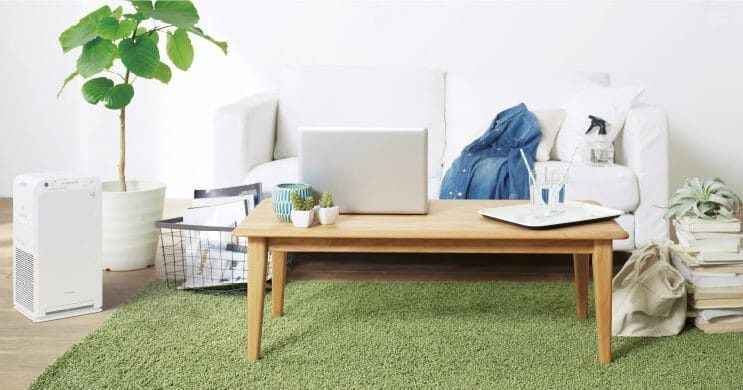There is a lot of hype out there about air purifiers in Malaysia — about their effectiveness and the need for it. In this blog post, we’ll talk about the effectiveness of air purifiers, whether they’re actually beneficial for you, and if it’s crucial to have one in your home.
So, are air purifiers effective? The simple answer is yes. These devices are very effective in cleaning the air inside your home.
The basic job of an air purifier is to attack, trap, and collect any airborne contaminants in your home by operating in two ways:
- By cycling air through an internal filtration system
- By sending out charged particles into the air to trap (or kill) the pollutants
For instance, air purifiers that come with a HEPA filter can remove and trap particles as small as 0.3 microns. The pollutants include bacteria, mold spores, dander, and dust. An air purifier with a HEPA filtration system can filter up to 99.97% of harmful airborne particles.
Before you invest in an air purifier, you should know that the device is not a ‘cure-all.’
This is because it is difficult to separate the effects of known air-quality pollutants from other environmental and genetic factors. For instance, how are furniture and ventilation in your home affecting you — in addition to any indoor pollutants? Is your allergy or asthma hereditary?
Always go for an air purifier with HEPA filter
However, an air purifier with HEPA filter has proven to be helpful for allergy and asthma patients because it helps to remove fine airborne particles inside your home. Therefore, it is worth it to invest in an air purifier in Malaysia.
HEPA filters to capture different sizes of particles using a multi-layered netting made of very fine fiberglass, which is usually thinner than the size of a strand of human hair.
The HEPA filter is airtight and is designed with a thick sheet of small pleated fibers and sealed within a metal or plastic frame.
The fan of the air purifier draws the air in the room into the filter, and the pollutants are captured in the filter. The particles that are larger than the fibres are captured by impaction (that is, the particles crash into the fibre).
While the mid-sized particles are captured by interception (that is, the particle touches the fibre and is captured), and the ultra-fine particles are captured through diffusion (that is, as the particle zig-zag through the air, it eventually hits and sticks to the fibre).
Studies have revealed that indoor air quality is usually worse than outside air. It is because there are many things in the home that can produce invisible airborne pollutants like cleaning supplies, building materials, bacteria, paint, cooking particles, pets, smoke, dust, etc.
Because our homes are usually tightly sealed, the polluted air only circulates within the home. Hence, the need for air purifiers in Malaysia.
Finally, air purifiers are in fact important for every home, based on all the aforementioned reasons. For more information, please feel free to visit Daikin Malaysia website.









